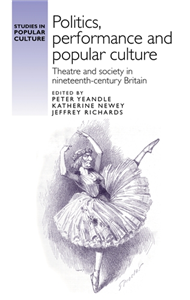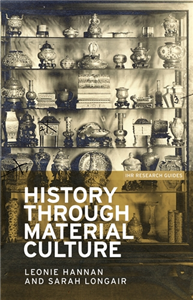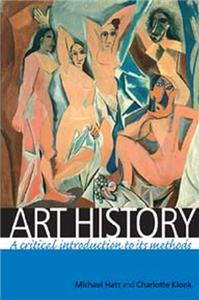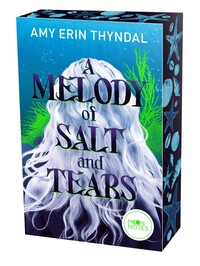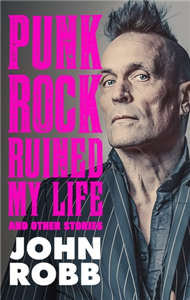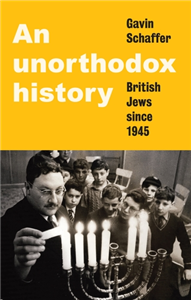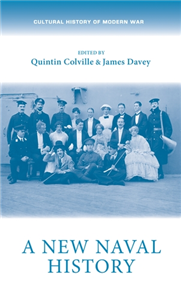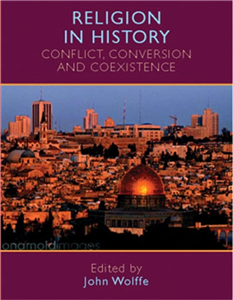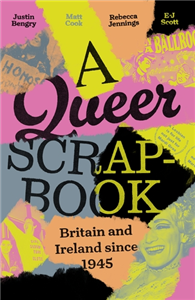Your Search Results
-
ZNN Network Literary and Illustrator Agency
- International Copyright, Licensing, and Literary Agency - International Illustrator Agency and Management Services - Creative Content Development Services
View Rights Portal
-
Promoted Content2019
Conspiracy Myths
How we are deceived by twisted facts
by Holm Gero Hümmler
The twin towers of the World Trade Center were blown up on behalf of the US government. Vapour trails in the sky contain chemicals that cause disease. The moon landing never took place; it was staged in a studio. Many people believe in conspiracy theories: supporting evidence can seem plausible, until you look closely. To refute conspiracy theories often requires scientific and technical knowledge. Dr. Holm Gero Hümmler has precisely this sort of knowledge, and he is able to communicate it clearly for laypeople. In his book “Conspiracy Myths” he provides guidelines on how to deal with questionable facts. He gives valuable tips for personal research and shows how to deconstruct well-known conspiracy theories – from 9-11 to the “earthquake machine” HAARP, to chemtrails and “Nazi UFOs”. Sometimes, refutation is easy: you only need a sand pit and game pieces ...
-
Promoted ContentMarch 2021
Columbus, the Discarded Explorer
Disaster of the legendary sailor
by Wolfgang Wissler
There he stands, the man the whole of Spain cheered, before whom the most catholic regents Isabella and Ferdinand rose to their feet, his eyes on his ship Capitana, devoured by shipworm, stranded off Jamaica. Some of the crew mutiny, the locals can no longer be fobbed off with glass beads, the Spanish on the nearby island of Hispaniola do not help, the world doesn‘t want anything to do with him, the demanding whinger. He, Christopher Columbus, is a John Lackland, a king without land, a conqueror without conquest. Between fiction and historical truth, Wolfgang Wissler recounts the legendary sailor‘s last expedition in an entirely new way – and what a story it is!
-
 Trusted Partner
Humanities & Social SciencesFebruary 2023
Trusted Partner
Humanities & Social SciencesFebruary 2023Politics, performance and popular culture
Theatre and society in nineteenth-century Britain
by Peter Yeandle, Katherine Newey, Jeffrey Richards
This collection brings together studies of popular performance and politics across the nineteenth century, offering a fresh perspective from an archivally grounded research base. It works with the concept that politics is performative and performance is political. The book is organised into three parts in dialogue regarding specific approaches to popular performance and politics. Part I offers a series of conceptual studies using popular culture as an analytical category for social and political history. Part II explores the ways that performance represents and constructs contemporary ideologies of race, nation and empire. Part III investigates the performance techniques of specific politicians - including Robert Peel, Keir Hardie and Henry Hyndman - and analyses the performative elements of collective movements.
-
 Trusted Partner
Industrial / commercial art & designApril 2017
Trusted Partner
Industrial / commercial art & designApril 2017History through material culture
by Series edited by Simon Trafford, Leonie Hannan, Sarah Longair
History through material culture is a unique, step-by-step guide for students and researchers who wish to use objects as historical sources. Responding to the significant, scholarly interest in historical material culture studies, this book makes clear how students and researchers ready to use these rich material sources can make important, valuable and original contributions to history. Written by two experienced museum practitioners and historians, the book recognises the theoretical and practical challenges of this approach and offers clear advice on methods to get the best out of material culture research. With a focus on the early modern and modern periods, this volume draws on examples from across the world and demonstrates how to use material culture to answer a range of enquiries, including social, economic, gender, cultural and global history.
-
 Trusted Partner
The ArtsMarch 2006
Trusted Partner
The ArtsMarch 2006Art history
A critical introduction to its methods
by Michael Hatt, Charlotte Klonk
Art History: A critical introduction to its methods provides a lively and stimulating introduction to methodological debates within art history. Offering a lucid account of approaches from Hegel to post-colonialism, the book provides a sense of art history's own history as a discipline from its emergence in the late-eighteenth century to contemporary debates. By explaining the underlying philosophical and political assumptions behind each method, along with clear examples of how these are brought to bear on visual and historical analysis, the authors show that an adherence to a certain method is, in effect, a commitment to a set of beliefs and values. The book makes a strong case for the vitality of the discipline and its methodological centrality to new fields such as visual culture. This book will be of enormous value to undergraduate and graduate students, and also makes its own contributions to ongoing scholarly debates about theory and method. ;
-
 Trusted Partner
Humanities & Social Sciences
Trusted Partner
Humanities & Social SciencesHOMECOMING
by Wolfgang Büscher
In the middle of the woods, in the middle of Germany: Wolfgang Büscher‘s fascinating journey into its very core. Night after night, a boy stands at the window of his parents’ house and watches the sun as it disappears from view behind the rolling hills in the west. He roams through the woods with his friends, building wooden shacks which the foresters destroy. It’s the early sixties. Decades later, Wolfgang Büscher makes his childhood dream come true. He moves to the woods and experiences spring, summer and autumn there. An aristocratic family on the border of Hessen and Westphalia where Büscher grew up allows him to stay in a hunting lodge in the middle of the woods, in the middle of Germany. This is where he puts up his camp bed. He has no electricity or running water. He prepares himself for quiet times alone, chopping wood and making fires, the odd hunting expedition, hiking, a marksmen’s festival, extreme loneliness and a nighttime blackness never seen in the city. The year takes an unexpectedly dramatic turn as storms, heat and plagues of beetles kill half of the woods. And something else happens which turns everything on its head: Büscher’s mother dies that summer, meaning the house he grew up in is left empty, but full of memories. This is a homecoming more existential than he could have imagined. A book far removed from the deafening din of today‘s world. An exploration of a nation, floods of memories and a “sentimental education” all rolled into one - literary, perceptive and overwhelming.
-
 Trusted Partner
Humanities & Social SciencesDecember 2024
Trusted Partner
Humanities & Social SciencesDecember 2024British culture after empire
Race, decolonisation and migration since 1945
by Josh Doble, Liam Liburd, Emma Parker
British culture after Empire is the first collection of its kind to explore the intertwined social, cultural and political aftermath of empire in Britain from 1945 up to and beyond the Brexit referendum of 2016, combining approaches from the fields of history, English and cultural studies. Against those who would deny, downplay or attempt to forget Britain's imperial legacy, the various contributions expose and explore how the British Empire and the consequences of its end continue to shape Britain at the local, national and international level. As an important and urgent intervention in a field of increasing relevance within and beyond the academy, the book offers fresh perspectives on the colonial hangovers in post-colonial Britain from up-and-coming as well as established scholars.
-
 Trusted Partner
February 2024
Trusted Partner
February 2024The Wigmaker of Königsberg
A difficult friendship with Immanuel Kant
by Michael Lichtwarck-Aschoff
It is said that all the ladies in Königsberg had a crush on Kant. How one coifs one’s intellectual giants, one’s occidental luminaries. Although at the time, Kant employed a Huguenot wigmaker to style his hair. Of whom not much is known. Except that he would have liked to get rid of the wigs and replace them with a short back and sides. And that he tried to comply practically with the idea of enlightenment. But with Kant’s sentences the great philosopher only ever addressed the enlightenment-driven rulers of Europe, and never the people of Africa, whose diff erent skin colour alone proved to Kant that they could not reach a higher level of civilisation on their own. But he and Kant only really fell out seriously over Esther, the pleasing and seductive maid...
-
 Trusted Partner
October 2025
Trusted Partner
October 2025Legends of Askja 2. A Melody of Salt and Tears
by Amy Erin Thyndal, Moon Notes
Mit wunderschönem Farbschnitt in der Erstauflage – Lieferung nach Verfügbarkeit! Liebe ist die stärkste Waffe Das Inselkönigreich Askja ist nun durch eine magische Barriere geschützt, doch der Frieden hat einen hohen Preis. Nur die Sirenen können den Schutzzauber durchqueren, weshalb Adelaide es als ihre Aufgabe ansieht, das verfeindete Kaiserreich Myredal zu überwachen. Nach dem Tod ihrer Königin stehen nicht alle Sirenen hinter dem Bündnis mit den Askjern: Der Sirenenrat fordert blutige Rache. Im verzweifelten Versuch, den drohenden Krieg abzuwenden, nimmt Adelaide den Admiral Marcus gefangen, um mehr über die Pläne Myredals zu erfahren. Dabei erfährt sie nicht nur, dass diese einen Weg gefunden haben, die Barriere zu durchqueren, sondern auch, dass selbst ein magiehassender Seemann wie er dem Zauber einer Sirene erliegen kann - und umgekehrt… Legends of Askja 2. A Melody of Salt and Tears: Eine spicy Romantasy in einer faszinierenden Fantasywelt Magie, Intrigen und verbotene Gefühle: Packende New-Adult-Romance über eine verführerische Sirene im Kampf um ihr Inselkönigreich. Zwischen Loyalität und Liebe: Bei der Schlacht gegen das Kaiserreich Myredal nimmt die Sirene Adelaide den Admiral Marcus gefangen und verliebt sich in ihn. Fesselnd und romantisch: Eine mitreißende Fantasy Romance mit den beliebten Tropes „forbidden love" und „morally grey characters“. Toll ausgestattet: Softcover mit trendig gestalteten Klappen und einem zauberhaften Lesezeichen zum Abtrennen. Band 2 der Erfolgsreihe „Legends of Askja“: Der spicy Roman begeistert alle New-Adult-Leser*innen, die gerne ihr Herz an den Feind verlieren.
-
 Trusted Partner
Biography & True StoriesMay 2026
Trusted Partner
Biography & True StoriesMay 2026Punk rock ruined my life
And other stories
by John Robb
The irresistible story of a one-man cultural phenomenon. Minister for the Counterculture, Mancunian mainstay and alternative national treasure John Robb has lived a life in music. In this book he charts his adventures on the cultural frontline, chronicling the making of a DIY icon. Robb's quest began in his hometown of Blackpool - where punk was a battle against the odds - and went international when he toured the world with his band. The first person to interview Nirvana, he also discovered The Stone Roses for weekly newspaper Sounds and did early interviews with The Jesus and Mary Chain and The Manics, before moving on to legends such as Mark E. Smith, Nick Cave and Patti Smith. Along the way, he became an on-screen commentator and author of bestselling books. Robb's memoir tells of deep friendships with figures from Poly Styrene to Chris Packham. Packed with riotous stories, it provides an alternative account of British musical and cultural history and a triumphant blueprint for a punk rock life.
-
 Trusted Partner
October 2020
Trusted Partner
October 2020Turning Men into Pigs and Staying Safe from Such Trickery
A Scientific Foray into the World of Ancient Greek Legends
by Monika Niehaus, Michael Wink
The adventures of Odysseus are not just a classic literary epic but also shine a light on intriguing questions for geography, archaeology and biology. Phenomena like the Cyclops and magic potions were only understood in recent decades thanks to phytochemical and pharmacological research that enabled new insights into the effect of plant substances on the mind and body. Monika Niehaus and Michael Wink embark on an enjoyable excursion in their book on a scientific foray for knowledge – from ancient myths to medieval drug excesses and the world of comics.
-
 Trusted Partner
Humanities & Social SciencesFebruary 2025
Trusted Partner
Humanities & Social SciencesFebruary 2025An unorthodox history
British Jews since 1945
by Gavin Schaffer
A bold, new history of British Jewish life since the Second World War. Historian Gavin Schaffer wrestles Jewish history away from the question of what others have thought about Jews, focusing instead on the experiences of Jewish people themselves. Exploring the complexities of inclusion and exclusion, he shines a light on groups that have been marginalised within Jewish history and culture, such as queer Jews, Jews married to non-Jews, Israel-critical Jews and even Messianic Jews, while offering a fresh look at Jewish activism, Jewish religiosity and Zionism. Weaving these stories together, Schaffer argues that there are good reasons to consider Jewish Britons as a unitary whole, even as debates rage about who is entitled to call themselves a Jew. Challenging the idea that British Jewish life is in terminal decline. An unorthodox history demonstrates that Jewish Britain is thriving and that Jewishness is deeply embedded in the country's history and culture.
-
 Trusted Partner
Trusted Partner
-
 Trusted Partner
2019
Trusted Partner
2019Good Evening, Good Night
The cultural history of sleep
by Karoline Walter
What we associate with sleep is shaped by the culture we live in. Whereas the God of the Bible never sleeps, the sinful human falls asleep every night and is thus marked as an inferior being. In the Age of Enlightenment, (too much) sleep was considered a waste of strength, which could otherwise be used to change the world. These days, sleep seems to be subject to the same tenets of usefulness as everything else and is seen to assist with the optimization of one’s self. However, culture and technology also influence how we sleep: for example, the constant availability of light, the modern conditions of work and all sorts of distractions have meant that we no longer follow our natural rhythm – a first sleep before midnight and a second sleep after a longer period of wakefulness, during which we may be active. In “Good Evening, Good Night”, Karoline Walter uses numerous examples from history, literature and research to illustrate how sleep and sleeping have changed across cultures and eras – an entertaining read, certainly nothing to put you to sleep.
-
 Trusted Partner
Humanities & Social SciencesApril 2022
Trusted Partner
Humanities & Social SciencesApril 2022A new naval history
by Quintin Colville, James Davey, Katherine Parker, Elaine Chalus, Evan Wilson, Barbara Korte, Cicely Robinson, Cindy McCreery, Ellie Miles, Mary A. Conley, Jonathan Rayner, Daniel Spence, Emma Hanna, Ulrike Zimmerman, Max Jones, Jan Rüger
A New Naval History brings together the most significant and interdisciplinary approaches to contemporary naval history. The last few decades have witnessed a transformation in how this field is researched and understood and this volume captures the state of a field that continues to develop apace. It examines - through the prism of naval affairs - issues of nationhood and imperialism; the legacy of Nelson; the socio-cultural realities of life in ships and naval bases; and the processes of commemoration, journalism and stage-managed pageantry that plotted the interrelationship of ship and shore. This bold and original publication will be essential for undergraduate and postgraduate students of naval and maritime history. Beyond that, though, it marks an important intervention into wider historiographies that will be read by scholars from across the spectrum of social history, cultural studies and the analysis of national identity.
-
 Trusted Partner
Humanities & Social SciencesNovember 2004
Trusted Partner
Humanities & Social SciencesNovember 2004Religion in history
Conflict, conversion and coexistence
by John Wolffe
This is an integrated collection of essays by leading scholars that looks at issues of conflict, conversion and coexistence in the religious context since the third century. The range of topics explored include paganism and Christianity in the later Roman world, the Crusades, the impact of the Reformation in Britain and Ireland, subsequent Protestant-Catholic conflict, the Hindu Renaissance in nineteenth-century India, the Palestinian-Israeli conflict, Britain in the 1960s, women and the ministry, and Christianity, Judaism and the Holocaust. The book concludes by offering an historical perspective on religion, conflict and coexistence in the world today. Published in association with The Open University, this is a student-friendly and accessible volume on popular subjects within religious history, and it will be of value to students on a range of courses, as well as to a wider readership interested in the historical background to the role of religion in the contemporary world. ;
-
 Trusted Partner
Humanities & Social SciencesJanuary 2026
Trusted Partner
Humanities & Social SciencesJanuary 2026A queer scrapbook
Britain and Ireland since 1945
by Justin Bengry, Matt Cook, Rebecca Jennings, E-J Scott
A beautifully illustrated compendium of LGBTIQ+ life. A queer scrapbook offers a treasure trove of LGBTIQ+ histories from across Britain and Ireland. Packed with materials, from interviews and newspaper articles to photographs and flyers, the book explores urban, rural and regional queer life since 1945. Commentaries and short essays introduce a changing queer landscape, spotlighting four broad themes: home and family, sex and socialising, arts and culture and politics and activism. The book delves into the meaning and experiences of domesticity and parenting and explores the sometimes unexpected places LGBTIQ+ people met to have fun. It examines the importance of creative work in forming community and identity and shows how people fought injustice and advocated for equal rights. Collecting has been a way for the marginalised to explore and assert identity and community. A queer scrapbook vividly illustrates the diversity of queer and trans lives across the British and Irish isles since the Second World War.
-
 Trusted Partner
Literature & Literary StudiesOctober 2010
Trusted Partner
Literature & Literary StudiesOctober 2010Sanctity and pornography in medieval culture
On the verge
by Bill Burgwinkle, Cary Howie, Anke Bernau
Sanctity and pornography in medieval culture exposes the complexity of bodily exposure in medieval devotion and contemporary pornographic cultures. Through readings of texts and images, sacred and profane, from preimodern France and Italy as well as Anglo-American modernity, the book makes a case for paying closer attention to the surfaces of our bodies and the desires that those surfaces can articulate and arouse. From the Old French life of Saint Alexis to the work of writer-filmmaker Miranda July, from Wakefield Poole to Pietro Aretino, these are texts and images that diminish the distance between premodern Europe and contemporary California, between the sacred and the profane, as they demonstrate how, in the end as in the beginning, the surface of things is never simple. ;
-
 Trusted Partner
Lifestyle, Sport & LeisureAugust 2016
Trusted Partner
Lifestyle, Sport & LeisureAugust 2016Culture in Manchester
Institutions and urban change since 1850
by Janet Wolff, Mike Savage
This book brings together studies of cultural institutions in Manchester from 1850 to the present day, giving an unprecedented account of the city's cultural evolution. These bring to light the remarkable range of Manchester's contribution to modern cultural life, including the role of art education, popular theatre, religion, pleasure gardens, clubs and societies. The chapters show the resilience and creativity of Manchester's cultural institutions since 1850, challenging any simple narrative of urban decline following the erosion of Lancashire's industrial base, at the same time illustrating the range of activities across the social classes. This book will appeal to everyone interested in the cultural life of the city of Manchester, including cultural historians, sociologists and urban geographers, as well as general readers with interests in the city. It is written by leading international authorities, including Viv Gardner, Stephen Milner, Mike Savage, Bill Williams and Janet Wolff.
-
 Trusted Partner
2020
Trusted Partner
2020History of the German Language
A textbook for German studies; Part 1: Introduction, prehistory and history; Part 2: Old High German, Middle High German and Early New High German
by Wilhelm Schmidt, Edited by Dr. Elisabeth Berner and Prof. Dr. Dr. h.c. Dr. h.c. Norbert Richard Wolf
The 12th revised and updated version of the History of the German language – long regarded as an indispensable standard work for German Studies, has just been published. From now on, this comprehensive textbook on the history of the language is divided into two volumes. In addition to introducing questions about historical linguistics, the first volume provides a detailed account of the prehistory and history of German right up to the present day. Based on extensive source analyses, the focus is on aspects of culture and social history; only the chapters on the Indo-Germanic and Germanic language include key information about structural history. The second part contains concise, but readily understandable accounts of Old, Middle and Early New High German in terms of phonology, graphemics, morphology and syntax. Not only are synchronous descriptions given of the particular language period, but also the development of German language construction at all structural levels is explained. The association of grammatical synchrony and structural diachrony is a particular characteristic of this second part of Schmidt’s work on the history of language.







